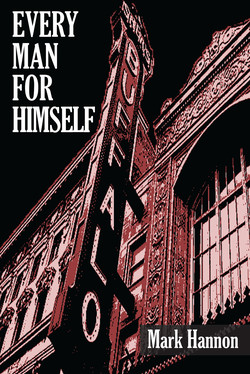Читать книгу Every Man for Himself - Mark J. Hannon - Страница 17
На сайте Литреса книга снята с продажи.
ОглавлениеCHAPTER 13
KENSINGTON, 1930
As Johnny trotted down the front steps that morning, he saw some big footprints in the freshly fallen snow and froze, looking up and down the street for his father. Not seeing him, he looked at the footprints, which showed someone had approached the house, then turned away and went on, their steps lost amongst the others on the sidewalk. Phew, he thought, that’s all he needed now, was his old man to come back, screaming drunk, tearing up the house, and knocking them around.
Johnny walked quickly, north on Fillmore to Ferry, keeping his eyes peeled in case his father was in the neighborhood. He’d heard that Pops had been at Babka’s a couple of times, but she chased him out for being a no-good, who didn’t care about his family. He’d heard he’d been hanging out in the bars on Broadway, doing odd jobs loading and unloading at the market there, then drinking it right up. Nobody seemed to know where he was staying, he just heard about him being spotted around the East Side from neighbors who shut up until he was out of earshot, shaking their heads and saying what a shame it was, what a shame it was.
Well, Johnny was working at the hospital, as he always called it, and it was true. The morgue was just part of the Myer Memorial Hospital, and when he wasn’t washing bodies, he was filling in as an orderly sometimes, mopping floors, cleaning beds, emptying bedpans, and just about any other dirty job no one wanted to do. A few more bucks a month and he might be able to get his own place, away from the cabbage smells of home, the fear of his father’s return, and his family’s ceaseless rounds of worry, prayer, and work.
When he walked into the basement entrance to the hospital, the coroner’s wagon men were there, looking at a watch. They paid no attention as Johnny slipped by and went to the water fountain to get a drink and listen to them.
“Gotta be worth five bucks. We should split it.”
“No, no, no, no, no, Herb, you get the ring, I get the watch this time. The luck of the draw, my friend.”
“Yeah, but this one’s different. It’s expensive.”
Herb raised his voice, nearly shouting, “Look, that’s what we agreed, Lunkhead . . .,” and then, they saw the boy looking at them.
“C’mon, dummy, outside with this,” Herb said, whereupon they hurriedly went through the heavy metal doors, out onto the lot where the morgue wagon was parked.
Johnny had noticed that the bodies didn’t have money or jewelry on them, and he had heard that the cops sometimes didn’t inventory the personal possessions too carefully. He figured that they split up the stuff with the wagon men, or if the police were either sloppy or honest, the wagon men got all of it. If the body had family, the body usually went to a funeral home, but if it came to the morgue, it was pretty much fair game.
The only time Johnny got a shot at any of the swag was when a ring or something was stuck and he had enough time to work it off when no one was watching. He had a small box of stuff—a few rings, a bracelet or two, and a necklace—that the wagon men had missed, stashed at Babka’s house in the coal bin, where no one would ever find it. The problem was turning it into cash. The pawn shops could figure out it was stolen and would give you next to nothing for it. Somehow, he had to find a fence that would give him some value for the stuff.
